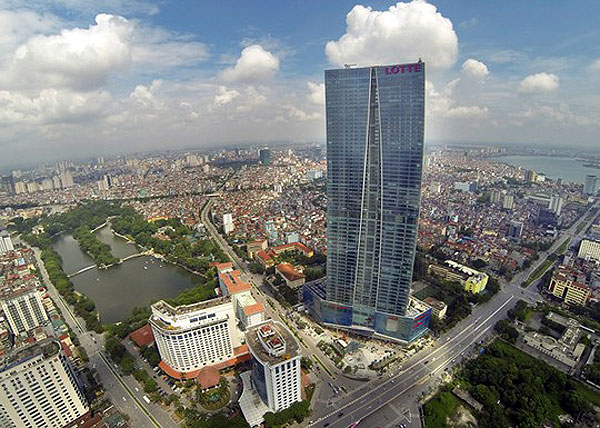Private economy – a driving force for Hanoi

The private sector is seen as a mainstay of Hanoi’s economic development. (Photo: ndh.com)
HANOI, May 4, 2019, VNA. The private sector is seen as a mainstay of Hanoi’s economic development as the nearly 250,000 firms make up 40 percent of gross domestic product (GDP) and generate jobs for over 50 percent of the labourers in the city, reported the Vietnam News Agency.
Accounting for 97.2 percent of the capital city’s total enterprises, the private businesses are affirming their leading role in the nation and city’s development and construction. Favourable mechanisms and policies outlined by local authorities have helped the firms stabilise and branch out their business operation.
However, Vice Chairman and General Secretary of the Hanoi Small and Medium Enterprises Association Mac Quoc Anh said that small- and medium-sized enterprises (SMEs)’ performance is still constrained by many factors, comprising both internal capacity and unfriendly external factors like shortage of capital and high-quality human resources, and narrow access to technology besides poor management and marketing capacity.
Therefore, SMEs would lose their competitive edge, especially when Vietnam is integrating deeply into the global economy, with various bilateral and multilateral free trade deals having been inked with the ASEAN, the US, Japan and the EU, he said.
In a bid to make SMEs become more conducive to local economy, Hanoi will create a sound business environment, ensuring that it serves as a launching pad for the firms to further develop, while supporting them in innovation, modernising technologies, and improving labour productivity.
It is necessary for the local authority to channel efforts to narrow gap with the ASEAN-4 (Indonesia, Malaysia, the Philippines and Thailand) in terms of technology, human resources and competitive capacity.
The city is completing and implementing effective mechanisms and policies, contributing to finalising the socialist-oriented market economy in the country by 2030. Accordingly, economic growth will be promoted in tandem with sustainable development, environment protection, and climate change response.
Besides, it will continue shake-up in State-owned enterprises, targeting that most of the companies have international-standard quality management systems, and modern technologies and techniques equivalent to those of regional countries by 2030.